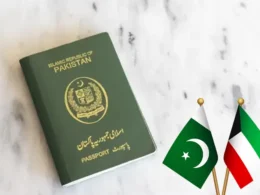In a ruling issued on Friday, the Federal Shariat Court (FSC) stated that transgenders in Pakistan cannot determine their gender identity based solely on their self-proclaimed feelings and desires. The order came as a result of a petition challenging the Transgender Act and was announced by Acting Chief Justice Dr Syed Muhammad Anwer and Justice Khadim Hussain Shaikh.
The court emphasized that gender is tied to a person’s biological sex and plays a significant role in religious practices such as daily prayers, fasting, and Hajj in Islam. It declared that a person’s gender cannot be determined by their feelings and that Shariah does not allow gender reassignment solely due to impotence, as gender remains the same as assigned at birth.
Furthermore, the court clarified that physical features and self-identified gender cannot be the basis for declaring someone transgender. Instead, the gender of an individual will be determined by their dominant physical features or secondary sex characteristics. Those with dominant male features will be considered male transgenders, while individuals with dominant female secondary sex characteristics will be deemed female transgenders.
While the court upheld the responsibility of the government to safeguard the rights of transgender persons, it deemed Sections 7 and 3 of the Transgender Protection Act and Section 2F of the Transgender Act as contrary to Islam and Shariah. It also declared the rules made under the Transgender Protection Act as illegal.
The Transgender Persons (Protection of Rights) Act, passed in 2018, aims to prevent discrimination against transgender individuals and ensure their rights in various areas, including education, employment, and public spaces. However, religious political parties and conservative politicians have raised objections to the law, claiming it goes against Islamic principles and allows gender-reassignment surgeries, same-sex marriages, and cross-dressing.
It is important to note that the law defines a transgender person as someone who is intersex, a eunuch assigned the male gender at birth but undergoes castration, or a person whose gender identity differs from their assigned sex at birth. The law allows transgender individuals to change their name or gender on identity documents with the National Database and Registration Authority (NADRA), designating their gender as “X,” representing the third sex category established by the Supreme Court in 2009.
The law prohibits harassment, discrimination, and ensures various rights for transgender persons, including access to driver’s licenses, passports, safe housing, medical and educational facilities, psychological counseling, and inheritance rights. However, it does not allow men to change their gender to female or vice versa on official documents.
As the debate on transgender rights continues, the ruling by the Federal Shariat Court adds to the ongoing discussions surrounding gender identity, religious beliefs, and legal protections for transgender individuals in Pakistan.










